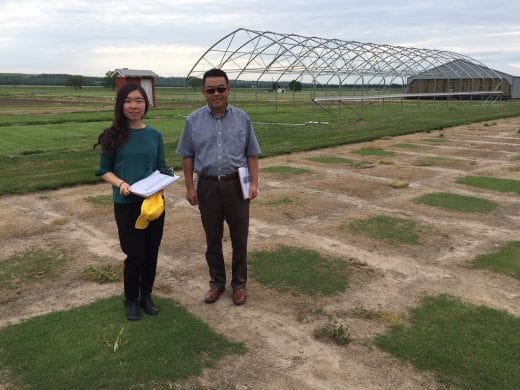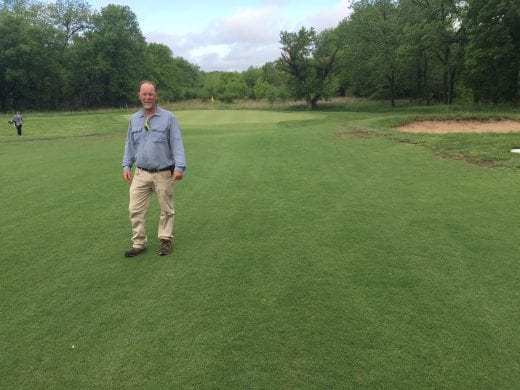By Dr. Jack Fry and Mingying Xiang, (KSU Turfgrass Teaching, Research and Extension)
It was a hard winter for bermudagrass, and we saw extensive winter injury in Kansas – even to cultivars that we usually consider winter hardy. There is a trial at the Rocky Ford Turfgrass Research Center in Manhattan in which we’re evaluating experimental bermudagrasses from the breeding program at Oklahoma State University lead by Dr. Yanqi Wu (Fig. 1). Here are averages (of three replicated plots) of winter injury for standard cultivars included in the trial when we rated them on May 25: Tifway (100%); Latitude 36 (80%); Northbridge (75%); and Patriot (70%). The total loss of Tifway isn’t unusual, as it has poor cold hardiness. However, the severity of this winter caused severe damage to cultivars we previously thought were relatively hardy, including Latitude 36 and Northbridge. There is some good news. Several experimental grasses included in this trial experienced almost no winter injury, which bodes well for release of grasses with good cold hardiness in the future.

We heard from turf professionals in the state who indicated that injury was severe in some cases, and minimal in others – microclimates and differences in exposure likely had a lot to do with that. Yukon bermudagrass, a seeded cultivar, had almost no winter injury at Wildcat Creek Golf and Fitness in Manhattan (Fig 2). This was impressive considering it was seeded in 2017.

Fortunately, it has been a great summer for recovery. High temperatures above 100 F and lows in the mid 70s speed the growth and spread of bermuda. Unfortunately, it’s been another one of those hard summers for cool-season grasses. Here we are in Kansas trying to cope with the wrath of extreme winter and summer temperatures – been here, done this.
